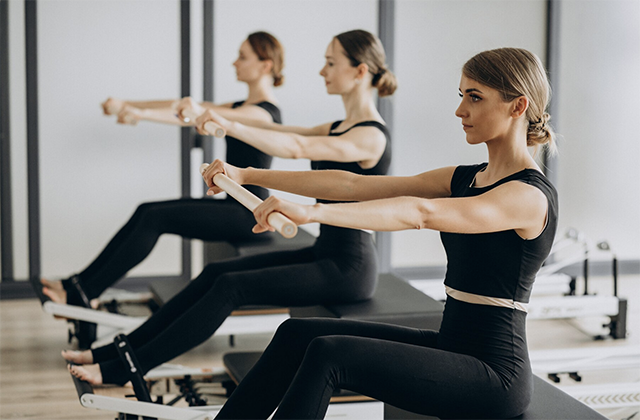Introduction
Stress is a modern-day epidemic for that reason I do infra red sauna Northern Beaches once every month. It’s a leading cause of high blood pressure, heart disease and anxiety, and it reduces our quality of life. But there are ways to get rid of stress: yoga, meditation and even fitness classes can help you combat it. Pilates is another option that offers many benefits for relieving stress and increasing your overall health and well-being. Here are just five ways Pilates can help relieve your stress—and make you happier!
Pilates is a series of slow, controlled movements that engage the muscles to eliminate stress and produce results.
Pilates is a series of slow, controlled movements that engage the muscles to eliminate stress and produce results. It’s a system of exercise developed in the early 20th century by Joseph Pilates.
Pilates is not just good for your body; it also improves your posture, strengthens your core, helps you lose weight and relieves back pain.
Pilates helps you focus on your breathing, which can have a calming effect.
The Pilates practice emphasizes breath control. This allows you to focus on your body and movements, which can help you relax. As a result, the Pilates method is often used as part of a stress management regimen.
If you’re feeling stressed out, try taking some time for yourself in a quiet space where you can breathe deeply and focus on relaxing your muscles. Sit quietly with your eyes closed or look at the ceiling without moving anything else in the room (including yourself). Imagine breathing into different parts of your body until they feel relaxed and then repeat with other areas that are tense or stiff.
Pilates has a low-impact effect on your body so it’s easier on your joints and muscles.
Pilates is a low-impact exercise. This means that it’s easier on your joints and muscles compared to exercises that involve jumping, running or impact with the ground. Because of this, you can do Pilates at any age and level of fitness without worrying about injury or joint strain. There are also many modified Pilates moves available for those who want to ease into the workout slowly.
Pilates can be performed from a seated position (such as on a chair), standing position and lying down in order to target different muscle groups throughout your body — making it ideal for those looking for an effective workout but want something less intense than cardio or strength training workouts like running or weightlifting.
Pilates focuses on the mind-body connection, making you more aware of how your body feels and what it needs.
What you may not realize is that Pilates can help you become more aware of how your body feels and what it needs. By focusing on the mind-body connection, Pilates can help improve your mental health by making you more aware of how your body feels. This awareness leads to greater self-care and improved ability to meet your own needs in both physical and emotional ways.
By getting into this mode of “feeling” the present moment, you are able to connect with yourself on a deeper level. You will be able to feel any tension or discomfort in an area so that it can be addressed before becoming a problem.
Pilates lets you control your exercise routine so that you won’t push yourself too hard.
When you’re stressed, it’s easy to become overwhelmed with the amount of work you have to do. But Pilates is a great way to stay healthy, fit and strong—especially as you get older.
You’ll be surprised at how much Pilates can help reduce your stress levels by increasing flexibility, strength and endurance. And since all exercises are performed in a controlled environment at a slow pace, it’s easier to focus on the quality of your movements rather than their quantity.
Pilates helps us develop balance between our mind and body by allowing us to release pent up emotions through physical activity. The practice also helps improve posture by strengthening muscles that support the spine. In addition, Pilates provides an outlet for people who like having control over their workout routine which ultimately reduces stress levels because they know exactly what they need/want out of their exercise routine.”
When practiced regularly, Pilates can reduce stress and anxiety by promoting awareness of your physical self.
Pilates is a series of slow, controlled movements that engage the muscles to eliminate stress and produce results. By focusing on your breathing, Pilates helps you relax your mind, which in turn can decrease anxiety. Additionally, since Pilates has a low-impact effect on your body (meaning it’s easier on joints and muscles), it doesn’t cause as much pain or discomfort as other forms of exercise.
Conclusion
Pilates is a fantastic way to reduce stress, but it should not be your only form of exercise. You should incorporate other forms of exercise into your routine as well. For example, you could do Pilates three times a week and then go for a run or hike on the weekend. By combining Pilates with other types of workouts, you’ll be able to reap even more benefits from each type of activity!

